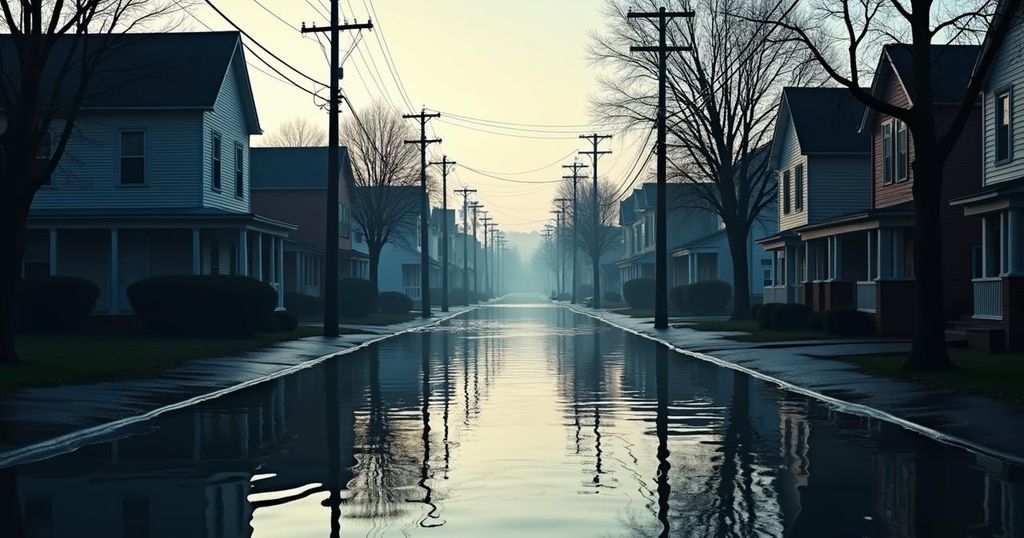Hurricane Helene has caused extensive flooding and communication difficulties in western North Carolina, especially in townships like Asheville. As the region deals with the aftermath, over 400 roads remain closed, and the death toll across five states has reached at least 61. Search and rescue operations face obstacles due to limited access and ongoing flood risks. Despite the destruction, there is a collective hope for recovery and restoration within the community.
On a clear and cool Sunday, the North Carolina mountains revealed the extensive devastation left by Hurricane Helene, which had originally made landfall in Florida as a Category 4 storm before causing catastrophic flooding across several states. The towns in western North Carolina, including Asheville, continued to face struggles in communication, with poor cellphone and internet service hampering efforts to reach out to loved ones. Reports indicated that over 1,000 individuals had sought assistance in locating friends and family members amid the confusion following the storm. Tragically, the storm has claimed the lives of at least 61 individuals across five states, including ten in North Carolina alone. As the clean-up continues, over 400 roads remain closed in North Carolina, including critical interstate routes essential for transportation in and out of Asheville. Fire Chief Anthony Penland described the scene in Swannanoa, stating, “the main area of town is ‘completely devastated,'” highlighting the extent of the destruction. Search and rescue operations face significant logistical challenges, with access to flooded neighborhoods limited. Ongoing flash flood warnings remained in effect, with concerns persisting about additional rainfall from the remnants of Hurricane Helene. Flood alerts were especially critical for areas along the Catawba River where severe flooding could pose life-threatening risks. In Asheville, residents witnessed their beloved neighborhoods transformed as the French Broad River overflowed its banks, devastating local businesses and parks. Artists and community members alike expressed their sorrow over the changes, recalling fond memories associated with the affected locations. The community’s resilience is evident, although uncertainty looms regarding the future of local businesses and the economic landscape in the wake of the disaster. As the community grapples with recovery, hopes remain that the spirit and creativity that defines this cherished region may one day be restored.
In the aftermath of Hurricane Helene, the small towns of western North Carolina are experiencing significant challenges in communication and recovery. The hurricane, having caused destruction far from its original landfall in Florida, led to catastrophic flooding compounded by ongoing poor communication infrastructure. Emergency services and local authorities are working diligently to assess and respond to the needs of those affected. The human toll of the storm has been severe, with multiple fatalities reported across several states, further emphasizing the importance of effective communication and recovery efforts in the wake of such natural disasters.
In conclusion, Hurricane Helene has left a profound impact on the communities of western North Carolina, causing tragic loss of life, extensive property damage, and significant challenges in communication. As local residents and emergency services work to navigate the ongoing recovery efforts, the resilience of these communities is put to the test. The hope for restoration remains strong, as individuals reflect on their memories and the unique spirit that defines their neighborhoods, emphasizing the need for support and solidarity during these trying times.
Original Source: www.washingtonpost.com







